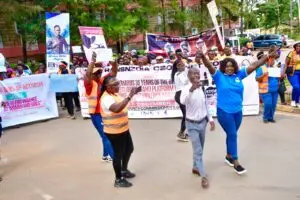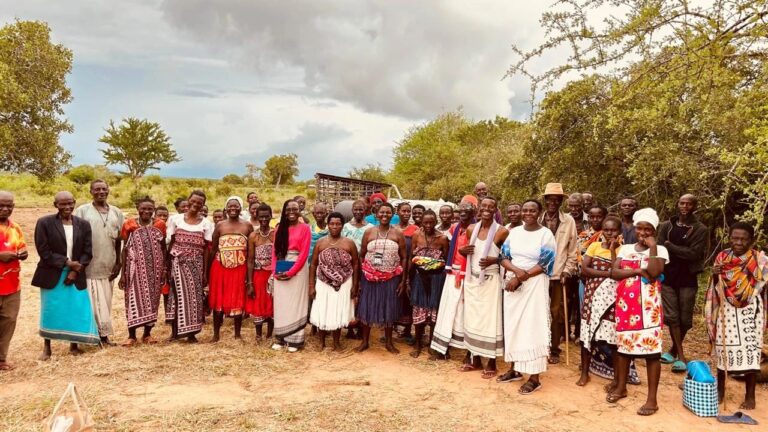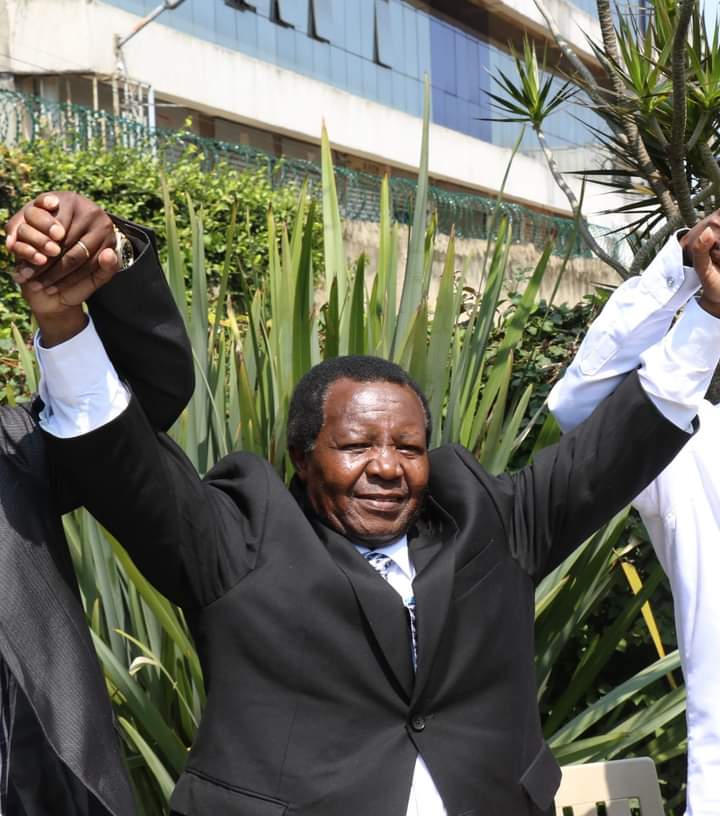In Kenya, 579 women were reportedly killed in 2024. This is the highest number in the country’s femicide cases historically, a report by the Technical Working Group to Combat Gender-Based Violence (GBV) has established.
The multi-sectoral team, led by former Deputy Chief Justice Dr. Nancy Baraza, was established on January 10, 2025, by President William Ruto through a Gazette Notice in response to a disturbing rise in femicide cases in the country.
On the other hand, the National Police Service (NPS) and the National Crime Research Center (NCRC) established that 129 women were killed between January and March 2025—a worrying trend, as activists call for femicide to be declared a national crime, with the signing of a petition currently underway.
Trans Nzoia County, which lies in Kenya’s Rift Valley region and is considered the country’s food backbone, is shielding the fight against GBV through the continued use of Kangaroo Courts. Kangaroo courts are informal courts, lacking judicial structure and regulation. In most cases, there are no clear guidelines on how proceedings are conducted.
Victims of GBV, defilement, and Sexual Gender-Based Violence (SGBV) do not receive their right to a fair trial and justice, as in many instances, decisions are settled by elders, and perpetrators continue to enjoy freedom even after committing heinous crimes. The Kangaroo courts often prioritize the protection of the family’s reputation while silencing the victims.
According to Anne Mutungi, a GBV activist based in Kitale, the courts headed by village elders and chiefs often claim to protect the ‘image’ of the perpetrator when he is a close relative of the family, to avoid shame and stigma from the community.
“Normally, we find it difficult to escalate cases of GBV and SGBV to the authorities as the wazee (elders) claim the act will destroy the reputation of the family. They eventually collaborate with the village elders and chiefs to locally solve issues, especially sexual assaults and rape cases. It is sad and difficult for victims,” she sadly narrated.
In rural counties of Kenya, most GBV cases end up in Kangaroo courts. Victims live in fear while perpetrators enjoy freedom, as their prey struggle to live with the trauma and rebuild the pieces of their darkened lives.
Collins Imbayi from the Lilian Siyoi Foundation narrates a horrifying incident that happened in the hills of Cherangani at Kerio Ward in Cherangani Constituency, where a woman was hacked to death by her husband after she asked him not to sell the family’s only piece of land, which was their sole source of livelihood.
In their mission to rescue the affected children, the local leadership had suppressed the case after elders from both families agreed to settle the ‘issue’ at home. After tips from the villagers, the Lilian Siyoi Foundation made efforts that ensured the man was arrested and is currently detained at the Kitale Maximum Prison.
“Through the help of the villagers, we were able to arrest the man, and we are very confident his deceased wife will get justice. This is one of the many cases we have received. There are more sad situations at home being settled under these Kangaroo courts, with victims failing to receive their deserved justice,” he stated.
NCRC Director Mutuma Ruteere said femicide cases reported in Trans Nzoia were 13, with families settling the cases through Kangaroo courts, asserting that the number of women killed and not reported might be higher than the documented cases.
How is the Kenyan government responding to this? Trans Nzoia County Commissioner Gideon Oyagi said the government is working towards fully eradicating Kangaroo courts in the country and that those found handling defilement, GBV and SGBV cases through them will be held accountable.
Oyagi further disclosed that the National Police Service (NPS) has gender-based violence desks in police stations. However, the desks have not been active, and plans are underway to empower them to fully handle these cases and eliminate the use of Kangaroo courts which deny victims impartial justice.
“The NPS has gender-based desks, but they have not been active. As a government, we want to empower gender-based desks, as well as do away with Kangaroo courts,” Oyagi stated.
Janet Ambani, a police officer based at the Kitale Central Police Station Gender Desk, said they are working tirelessly to ensure that cases related to defilement, GBV and SGBV do not end at home or in Kangaroo courts, but that perpetrators are arrested and taken to the judicial courts as a first step in the victims’ healing process.
While many nations across Africa fight to eliminate violence against women and girls, which is Sustainable Development Goal (SDG) number 5, African culture remains a major challenge, along with frustrations in the judicial process. Investigations often cite a lack of sufficient evidence, which has continued to empower Kangaroo courts.
Far west in Africa, a successful GBV case involving the late Nigerian gospel artist Osinachi Nwachukwu who died as a result of domestic violence at the hands of her husband in 2022 saw Justice Njideka Nwosu find her husband Peter Nwachukwu guilty of the charges including possible homicide, sentencing him to death by hanging.
As victims wait for the government to actualize its promises, activists and victims urge a full crackdown on local leaders promoting Kangaroo courts and obstructing justice for victims as the offenders walk freely.



